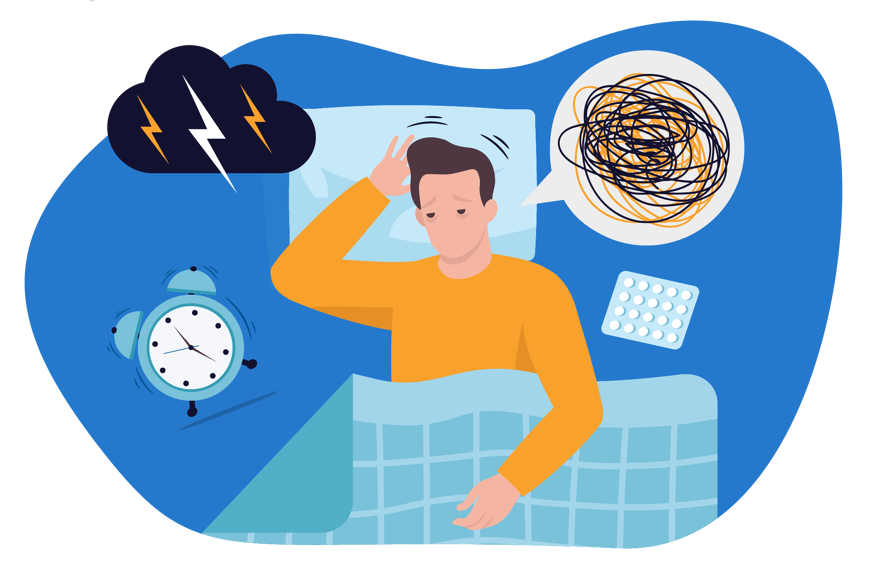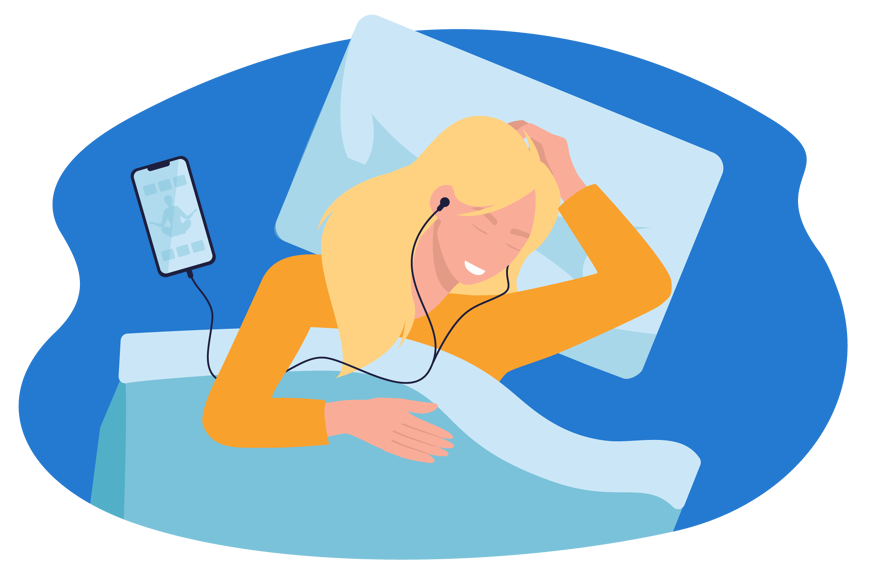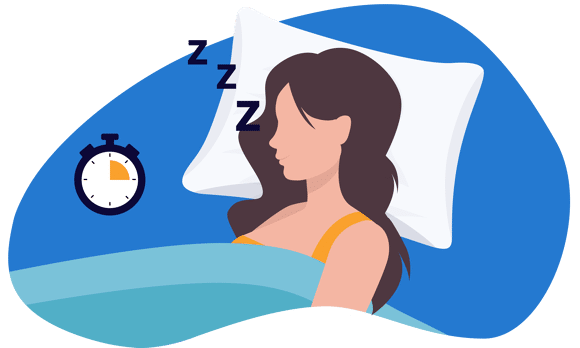Analysing global sleep patterns
The title of the country with the most sleep often goes to nations renowned for their high quality of life and well-balanced lifestyle.
But, it’s worth keeping in mind that modern global sleep patterns are usually analysed by using smartphone data, and any sleep study would thus necessarily be biased towards smartphone users. 📱
More traditional research that relies on methods like self-reporting or clinical studies is still available, but these are often on a smaller scale.

Since we’re not in a position to conduct a global sleep study ourselves, we’ve looked at a few of the most popular sleep studies to find the best average.
The 2016 Science Advances study
One of the largest global sleep studies was conducted by the ENTRAIN app and published in Science Advances [1].
Their data revealed that individuals in the Netherlands enjoy the most sleep per night, while those in Singapore and Japan experience the shortest rest periods. 🇳🇱
Here is an overview of ten of their findings on average sleep duration by country:
- Netherlands: 8 hours and 5 minutes
- New Zealand: 8 hours and 4 minutes
- France: 8 Hours and 3 minutes
- Australia: 8 hours and 1 minute
- Belgium: 8 hours and 1 minute
- Canada: 7 hours and 58 minutes
- United Kingdom: 7 hours and 54 minutes
- United States: 7 hours and 52 minutes
- Japan: 7 hours and 30 minutes
- Singapore: 7 hours and 24 minutes
This study indicates that geographical proximity and cultural similarities often lead to comparable sleep patterns among countries, overriding broader global sleep trends.
A 2022 Public Health Maps study
The Public Health Maps study [2] focused on data from different countries.
According to their analysis, most people in Europe get at least the recommended 7 hours of sleep a night, with the exception of Turkey, which falls slightly short.
The Netherlands and Finland ranked at the top of the list, getting around 7 hours and 40 minutes of sleep a night, while the UK, Belgium and Ireland ranked just under this with around 7 hours and 30 minutes of sleep a night.
The 2023 PlushCare study
The PlushCare study [3] relied on sleepcycle.com [4] data to analyse which countries had the most long sleepers (over 10 hours a night), which countries had the most short sleepers (under 5 hours a night), and which countries had sleepers sticking to the recommended 7 - 9 hours a night.
Their key findings:
- Australia had the highest percentage of long sleepers (8.60%).
- Iran had the lowest percentage of long sleepers (1.32%).
- Qatar had the highest percentage of short sleepers (36.64%)
- The Netherlands had the lowest percentage of short sleepers (6.34%)
While their research methodology was slightly different, the outcome is similar to that of the 2016 ENTRAIN study, with the Netherlands and Australia ranking towards the top of which countries sleep the most.
So, which country sleeps the most?
As we’ve just discovered, the answer to this question depends very much on the study in question.
But it’s relatively safe to say that the Netherlands continuously ranks as one of the countries that gets the most sleep a night.
Most of Europe is pretty similar in terms of rankings, though, and people in all countries, on average, get the recommended 7 - 9 hours of sleep a night.
How do UK sleep stats compare to the global average?
When comparing UK sleep statistics to global data, it’s evident that the UK’s average sleep duration is slightly below the leading countries - but not by much. 🇬🇧
On a global scale, the British still get a healthy amount of sleep, but the fast-paced lifestyle, high work demands, and increased screen time in large metropoles like London can skew the average.

Cultural norms and environmental factors, such as long winter nights and short summer nights, may affect the natural sleep-wake cycle [5], but this isn’t much different in other northern European countries.
What are some of the global sleep problems?
Global sleep problems are a growing concern, affecting populations across various cultures and regions.
Insomnia, sleep apnoea, and other sleep disorders are increasingly prevalent, with factors such as stress, technology use, and lifestyle changes contributing to widespread sleep deprivation.
Studies also indicate that urbanisation and the 24/7 nature of modern society disrupts natural sleep patterns, leading to shorter sleep durations and poorer sleep quality worldwide.
The consequences of these sleep issues are significant, impacting mental health, physical well-being, and overall quality of life.
Tips on improving sleep quality
Improving sleep quality is essential for overall well-being and productivity. 🙌
We’d urge you to read our guide on sleep hygiene, but here are a few tips to help you get started on the journey to better sleep:
- Establishing a consistent sleep schedule by going to bed and waking up at the same time each day helps regulate your body's internal clock, promoting better sleep patterns.
- Creating a relaxing bedtime routine, such as reading a book or taking a warm bath, signals to your body that it's time to wind down.
- It is also crucial to limit exposure to screens before bed, as the blue light emitted can interfere with melatonin production.
- Additionally, maintaining a comfortable sleep environment by keeping your bedroom cool, dark, and quiet can enhance sleep quality.
- Finally, practising stress-reduction techniques like meditation or deep breathing exercises can calm the mind and promote deeper, more restful sleep.
Incorporating these tips into your nightly routine can lead to more refreshing and rejuvenating sleep.

What does data on which country sleeps the most tell us?
Sleep studies, like all studies, are hugely impacted by their research criteria and often skewed towards developed nations.
But it’s still worth noting that a high quality of life is often closely tied to getting enough sleep.
Whether the former impacts the latter or vice versa is a matter of debate, but one fact remains true: Getting your recommended 7 - 9 hours a night is one of the best choices you can make.












Alternatively, message us directly via the Contact Us page.